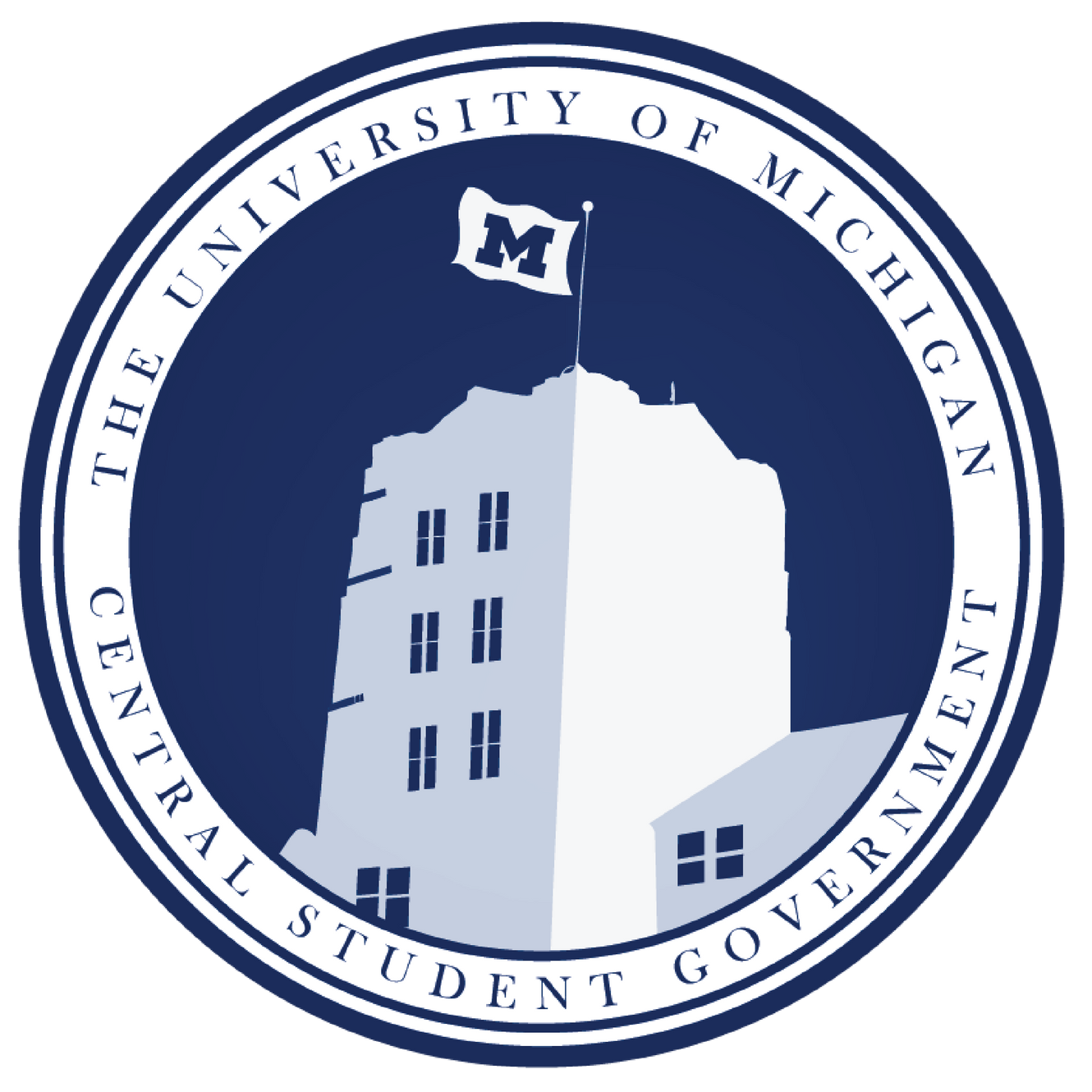“Through our work and advocacy, we seek to encourage student civic engagement, give voice to student concerns, and enhance student welfare and the Michigan experience for everyone.”
Those words on the front page of the Central Student Government (CSG) website are one of the main missions student government has in representing students. Having worked in student government for four years now, I have met many incredible people who devote countless hours to bringing this mission to life.
Despite those laudable efforts, CSG has developed the habit of purposefully ignoring nonbinding ballot questions. This year, there are actually some CSG members who feel relieved when a ballot question is proposed as nonbinding and does not carry a mandate for them to act. I find this behavior reprehensible, and revisiting the most recent CSG elections demonstrates how this new habit breaks years of precedent — and how we can end it, once and for all.
Researching the history of CSG elections, I expected to find numerous instances of CSG ignoring election results. But remarkably, CSG has been very consistent in adhering to voters’ wishes — at least since 2016, which is as far back as the website goes.
There was not a single ballot question from 2016 to 2020, but from 2021 to 2023, there were over a dozen, including proposed constitutional amendments and binding and nonbinding questions. Binding questions and amendments are enacted automatically, but reviewing the implementation of nonbinding questions highlights how CSG’s perception of the voters’ will has gone from gospel to optional over just the last year.
Voters overwhelmingly demanded the Public Elections Fund in 2021. Today, that idea is a fixture in CSG elections, with all students benefiting from the lower barrier to entry in CSG elections. There were three questions on the ballot in Winter 2022, with none of them being directly changeable by CSG.
CSG honored the spirit of these results by continuing to demand the changes voters wanted throughout the 2022–23 academic year, including the sustainability requirement and funding increase for CSG’s popular programs (such as the New York Times and Wall Street Journal subscriptions for all students, which is still in effect).
The question of how to use the now-vacant Fleming Administration Building site, in the Fall 2022 election, spurred the demand for another green space on campus. Originally an idea of LSA Student Government (specifically the Taking Responsibility for the Earth and Environment Subcommittee), the green space was endorsed by CSG. The U-M administration is now set to totally revamp the area with a green space being at the core of the renovations.
In two years, each result CSG had direct control over was honored, while all the campus-wide demands from voters were elevated to the desks of the U-M administration, resulting in tangible change. However, 2023 has seen a flagrant disregard for the most recent election’s results.
The Winter 2023 election had three nonbinding questions, with one being directly actionable. The first question addressed the the Graduate Employees’ Organization (GEO) proposal for an unarmed response team, which passed overwhelmingly. As of today, CSG has not publicly said or passed anything advocating this in 2023–24.
The second question was on GEO’s demand for a living wage, which was also overwhelmingly approved in the elections. The strike resolved before the fall semester started, but when legislation for CSG to pay its own employees a living wage was introduced, the 13th Assembly voted against the bill. Even though the original question was about university employees, it is hard to imagine that voters who supported GEO’s demands for a living wage would also support paying CSG’s employees anything less.
The third question was whether to extend the voting period for CSG elections to five days, which passed by a margin of over 20 percentage points. Despite this, there are several voices in the 13th Assembly who are ignoring the results and are moving forward with an unchanged or slightly increased voting period. Although there is still time left to do right by these results, the prospects of their being fully honored are grim without a significant demand for change — and everyone on campus can help.
There are two possible avenues to ensure referendums are adhered to. The first is to relax the rules on binding questions. Right now, the rules are extremely strict for binding questions and petitions, requiring specific text to be ready for implementation.
If the rules were changed so that binding ballot questions could demand change with just a simple description, it would be more difficult to ignore the will of the voters, and leaving the enforcement details up to CSG would make ballot initiatives far easier to enforce.
Additionally, petitions currently require a ridiculous 1,000 signatures to get on the ballot, despite only a few thousand voters participating in CSG elections. To make this change, I encourage you to email your representatives.
The second avenue is for you to vote. Vote this November for people who say they will honor the voters’ will, even if they personally disagree with the outcome. There are a record number of coming special elections due to poor engagement from representatives this fall, which could change the trajectory of this year. Without the people being heard, there is no purpose for government.
